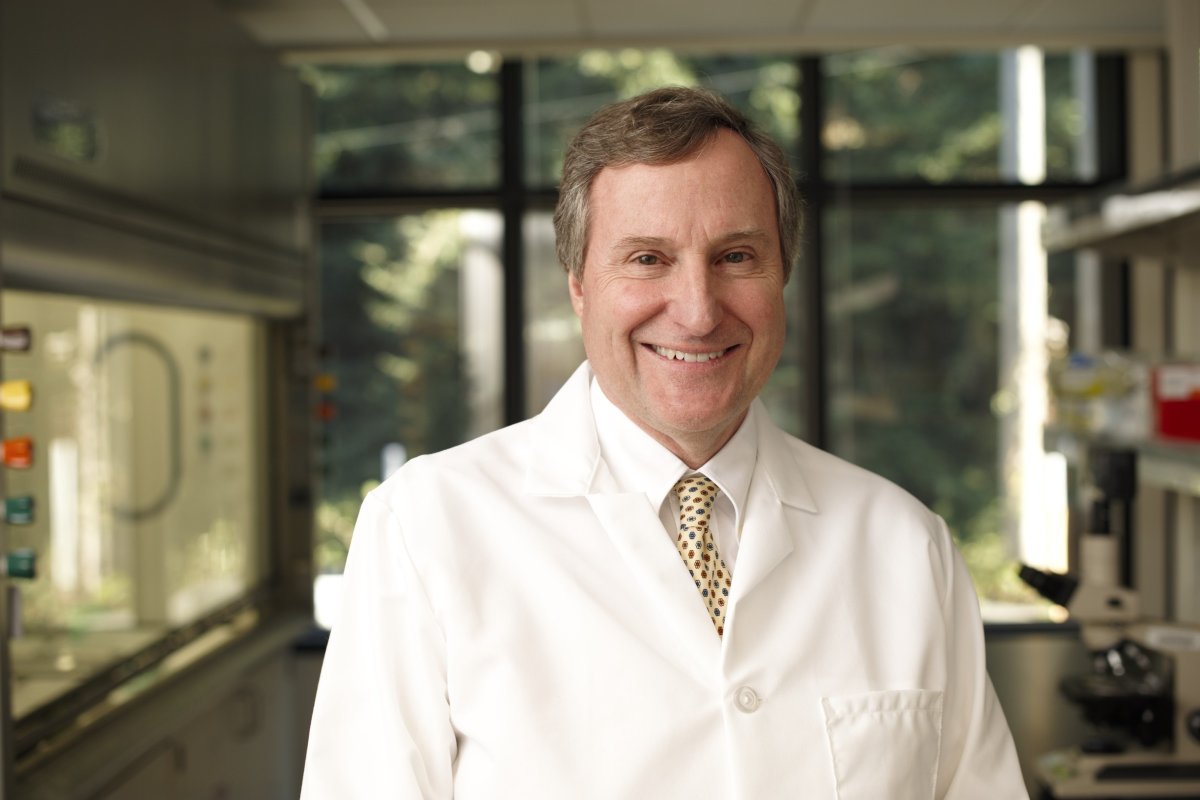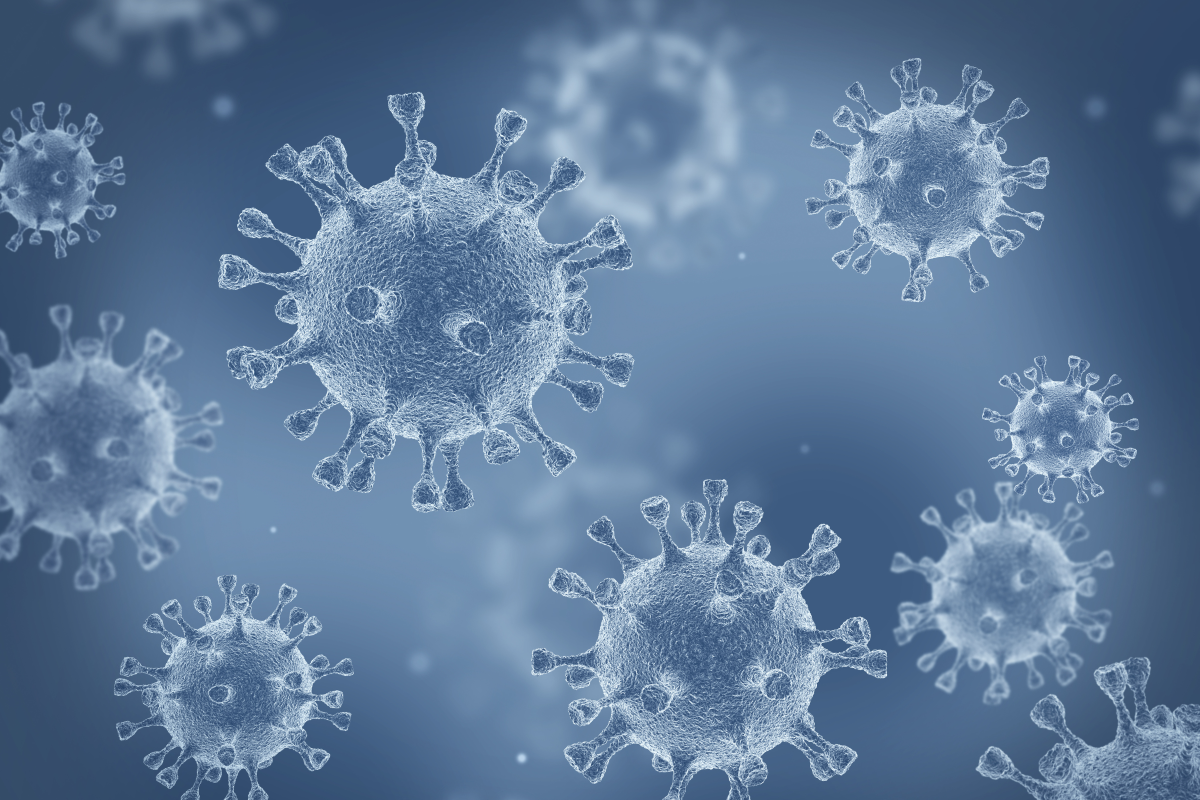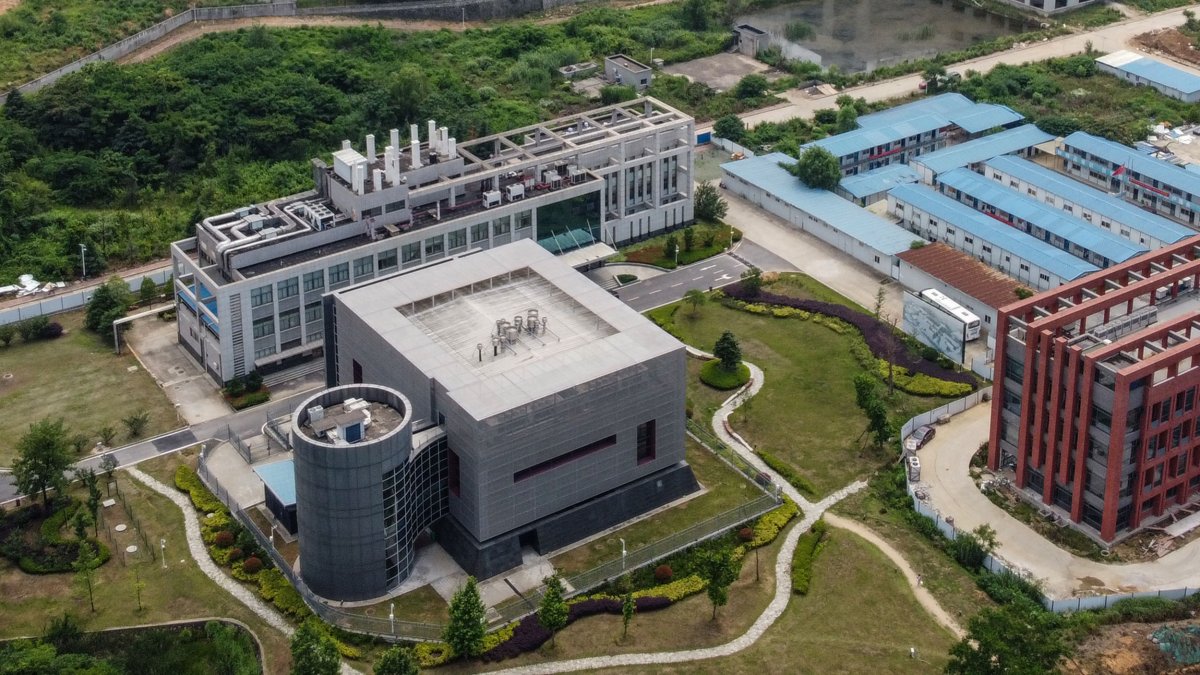I became aware of SARS-CoV-2 in late December of 2019. I happened to hear a news report about a new unknown virus coming out of China and the next day saw an unusual clinical case report about a family in Wuhan Central Hospital.
The mother and father both had this really strange pneumonia. Their son had no symptoms, but his own X-rays showed his lungs had exactly the same lesions.
Their doctor, Ai Fen, knew immediately this was a new form of coronavirus—it clearly passed from human to human and there was clearly an asymptomatic form of the virus—but, she claims, nobody listened to her warnings.

When I initially saw the viral genome, in January 2020, I noticed a pretty esoteric thing. The virus we would later call SARS-CoV-2 has something called a furin cleavage site (FCS).
The FCS, which had never before been seen in a SARS-CoV-2-related coronavirus, is a genetic feature that makes it easier for a virus to infect human cells. So, when I saw this FCS on SARS-CoV-2, I knew it was going to make it easier to infect cells and easier to evade the immune system by tunneling into neighboring cells.
Knowing FCSs were not found in nature in these SARS-related viruses I also knew that for years scientists have been artificially putting new FCSs into viruses to see what they do, and in every case I have seen, in which they published their results, it has increased infectivity, transmissibility, pathogenicity, or a combination of them.
I found that when you looked at this virus, it had none of the properties of natural infection and it still doesn't to this day. I have not found a single shred of actual evidence that supports the idea SARS-CoV-2 is a type of spillover infection that we have ever seen in the past.
To me, it looks much more like what would happen as the result of a lab accident.
In late 2020, I conducted an analysis in which I determined there was a 99 percent probability that SARS-CoV-2 was not a natural zoonosis, but was instead laboratory-derived.
While I believe very few people were focused on theories about where this virus came from at the time, I am one of the many people in my field who received a lot of pushback about this premise.
I did a lot of television and radio interviews at the time but, despite testifying in Congress about my findings, was never invited by any of the left-leaning mainstream media outlets.

Throughout my career, I have written 390 peer-reviewed papers and reports. Normally, the process involves sending in a paper to be reviewed by journal editors and expert scholars. The paper is then reviewed; it is heavily criticized in a back-and-forth process, and in most cases, it is then published. My papers are always better because of this peer review system.
But in 2020, both myself and colleagues who were saying similar things were sending out papers to be peer-reviewed, but getting rejected without any review of the merits of the data and by who knows whom at the journals. In these cases, there were never comments or scientific criticism offered, they just said effectively: "We're busy, we can't be bothered to send it for peer review."
While my papers have since started to get peer-reviewed, at that stage, it felt like they were refusing to engage with this type of research, and then in public were saying: "Well there's no peer-reviewed data that shows SARS-CoV-2 came from a lab."
In my opinion, they were gatekeeping that information in a very immoral fashion.
There is a form of scientific debate that involves what is called: '"The argument from authority." It consists of first reciting one's credentials of degrees, titles, and academic positions, and then giving a conclusion about something scientific. For example, someone saying: "I believe the earth is flat, and because I have a Nobel Prize, it must be so." Well, I think that way of thinking is silly.
Despite the fact I was issued a patent on a method to treat coronavirus infections in 2015, I got a lot of comments about not being a working coronavirus expert, from critics who did not want to engage with the evidence I was presenting.
I do not feel vindicated about this research. We have lost millions because of this virus; in my opinion, these gatekeepers, and some people in positions of power, have not done their job in a moral way.
I also believe some of those who are lobbying for an investigation into the origins of SARS-CoV-2 are, in effect, virtue signaling, knowing China will not allow any investigation to take place. In my eyes, we should be saying: "We have a lot of evidence, let's sit down as reasonable scientists and lay people, look at the evidence and make a decision from the evidence about what the origin is."
I feel we are seeing what I call a slight thawing of the debate; I believe it is currently acceptable to imagine SARS-CoV-2 was a laboratory-acquired infection, but still not acceptable to claim there is evidence the virus was manipulated with gain-of-function experiments, and certainly not to consider it was part of a bioweapon's program.

By examining genetic material uploaded to the GenBank system of the National Institutes of Health from labs all over the world, we found evidence of three kinds of gain-of-function experiments being conducted: One with the MERS coronavirus, which already has a lethality rate of greater than 30 percent, one with an influenza virus, which is 39 percent lethal, and one with the Nipah virus, which is estimated at up to 70 percent lethal.
I don't like to make broad statements about what you could call the existential dangers of this type of research; however, I am in the process of creating a mathematical model I believe that could help predict the future of it.
The model looks at modern society and what are the essential features that keep us going—food, energy, the healthcare system, fire and police departments, and clean water supply—and what it takes to derail those elements, individually and collectively.
Then I will use two parameters of the virus and see if the model ever predicts whether civilization is going to end as we know it; how lethal the virus has to be and how easy it is to transmit. We're going to model both of those on a sort of two-dimensional map and show the regions of that map where we believe civilization will be set back 200, 300 or 500 years.
I predict our model will show that people are operating in that space right now. My current estimate is that any virus with above about a 10 percent lethality and the same transmissibility as SARS-CoV-2 would end civilization for many centuries; that's what my gut is saying from all of this experience.
I don't feel the dangers of nuclear war are even close to the dangers of genetically modified viruses. Two atomic bombs were dropped on Hiroshima and Nagasaki and affected hundreds of thousands of people—but the COVID-19 pandemic has affected everyone on the planet.
I see no benefit from gain-of-function research and am pushing very hard for strong guardrails to be placed on it. While I think banning it altogether will not be achieved, I believe there is always a nonlethal substitute for most experiments.
I watch with envy the political capital around things like climate change, where the public is 100 percent engaged and pushing their government to take action. I believe this type of virus research will become a cliff event for us in the next couple of decades unless we take action—I just wish the public would be as concerned about this sort of research being done in a proper fashion.
In my opinion, if this type of research continues we will see a virus worse than COVID-19 in our lifetime. If we don't change anything, I believe it's only a matter of time.
Dr. Steven Quay is a physician-scientist and author of Stay Safe: A Physician's Guide To Survive Coronavirus. He is the founder of Seattle-based biopharmaceutical company Atossa Therapeutics Inc. You can follow him on Twitter at: @quay_dr
All views expressed in this article are the author's own.
As told to Newsweek's My Turn associate editor, Monica Greep.
Do you have a unique experience or personal story to share? Email the My Turn team at myturn@newsweek.com
Uncommon Knowledge
Newsweek is committed to challenging conventional wisdom and finding connections in the search for common ground.
Newsweek is committed to challenging conventional wisdom and finding connections in the search for common ground.
About the writer
To read how Newsweek uses AI as a newsroom tool, Click here.








